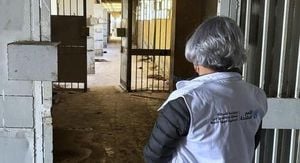Malta's government is poised to roll out new tourism policy initiatives aimed at attracting quality tourists and enhancing the country's connectivity, as announced by Prime Minister Robert Abela on Sunday. The emphasis will not only be on the volume of tourists visiting Malta but also on the type of visitors the island attracts.
According to Abela, the policy reflects Malta's desire to maintain its tourism figures without sacrificing the quality of visitors it welcomes. He argued against the notion of simply decreasing tourism numbers as a viable measure. Instead, efforts will include regulations on short-term rentals, which have become increasingly popular.
Last month, the Malta Tourism Authority's CEO, Carlo Micallef, unveiled proposals indicating future licensing requirements for apartment rentals, where property owners would need approval from the majority of their block's residents before being granted permissions for short-term letting. This change could substantially impact approximately three-quarters of Malta's licensed homes.
Abela explained the need to balance the interests of property investors with those of neighbors residing within the same building. "We cannot abandon those whose only investment is an apartment they bought to rent short-term, but we must balance their interests with neighbours who live in the same block as those short-term lets," Abela stated. His comments suggest the government is considering how to regulate the booming short-term rental market.
While specifics of the policy remain largely under wraps, Abela expressed optimism about Malta's tourism sector, linking its success to sound governmental strategies and economic growth. Speaking during the Labor Party's fundraising telethon, he attributed recent investments and the potential for more to the favorable conditions created by government policies. "We must entice the quality tourists the country wants," he emphasized.
Abela also highlighted ambitious developments, pointing to projects like the Mercury Towers, Malta’s tallest building, being financed by local developers, including Joseph Portelli. He remarked, "Until a few years ago, there wasn't a Maltese who could have taken on a project like this." This project symbolizes not only progress but also the heightening investments from local entities.
Following the upsurge of initiatives aimed at boosting tourism, the engagement with external partners like Vietnam is becoming pivotal. On the other side of the Mediterranean, Vietnamese Deputy Minister of Industry and Trade Nguyen Hoang Long proposed charter flights to connect Vietnam with Malta, promoting tourism and trade cooperation during the celebration of the 50th anniversary of diplomatic relations between the two nations.
Last year, Malta boasted welcoming up to three million tourists, making it increasingly favored among Vietnamese travelers exploring Europe. “Malta is attractive to tourists, with its 300 sunny days per year, UNESCO-recognized heritage cities, and beautiful beaches,” noted Long, underscoring the island's allure.
Christopher Cutajar, Permanent Secretary of the Ministry for Foreign and European Affairs and Trade, acknowledged the significant achievements from the diplomatic relationship, which has spanned half a century. He highlighted Malta's earlier role as one of the first Western European nations to engage with Vietnam, reinforcing mutual trust and respect, and underlining Malta's commitment to assisting Vietnam's quest for national independence.
With Vietnam positioned as a key member of ASEAN and Malta functioning as a burgeoning EU hub, officials express optimism for enhanced collaboration across sectors like trade and education. “The tourism cooperation potential between both nations is significant,” stated Long, emphasizing the benefits of mutual visitations and cultural exchange.
During Malta Week held recently in Vietnam, initiatives such as the “Experience Malta” photo exhibition and workshops were conducted, aimed at introducing Maltese culture, history, and exploring collaboration prospects across various fields, including fintech and blockchain.
Deputy Chairman of Ho Chi Minh City, Nguyen Van Dung, expressed faith in the future of the cooperative relationship. Dung remarked, "Malta's strategic location holds high potential to cooperate with Ho Chi Minh City," recognizing the untapped opportunities between the two vibrant locales.
Overall, the government's proactive efforts signal not only Malta's ambition to refine its tourism approach but also to solidify connections with international partners. Through these new initiatives, Malta aims to create balanced, thriving tourism experiences for both visitors and residents alike.



